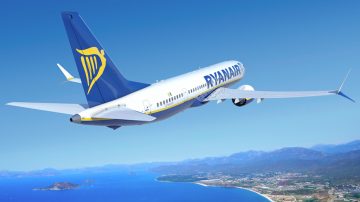
The UK’s Jet Zero Council is launching to a £15 million ’ Green Fuels, Green Skies’ competition to encourage ideas around turning household waste into aviation fuel.
The Green Fuel, Green Skies competition is part of the Prime Minister’s Ten Point Plan (downloads pdf), to ‘ build back better, support green job and accelerate the path to net zero.’
The hope is that the competition will “support UK companies as they pioneer new technologies to convert household rubbish, waste wood and excess electricity into sustainable aviation fuel.”
Proponents of the technology say that SAF can lower emissions by as much as 70 per cent compared to conventional jet fuel, and “create up to 11,500 jobs over the coming decades.”Critics however point to the need to concentrate on strict controls over what is considered to be ‘waste’ for the purposes of SAF and increased use of synthetic e-fuels
Sustainable aviation: fueling change
Companies will be able to bid for a share of £15 million to kickstart the development of first-of-a-kind production plants in the UK to produce these fuels at scale.
Jet Zero Council is a partnership between government and industry to push the UK Government’s net zero-emission ambitions for the aviation and aerospace sector, with a focus on sustainable aviation fuels. Amongst its members are the Civil Aviation Authority, Airbus, British Airways, Easyjet, Rolls Royce, Virgin Atlantic and Heathrow Airport.
The competition announcement comes as the government’s second Jet Zero Council meeting was attended today by new CEO Emma Gilthorpe, chief operating officer at Heathrow Airport.
Transport Secretary, Grant Shapps, said:
“As the aviation sector emerges out of the pandemic and looks towards recovery over the coming months, we must put our environmental commitments at the centre of everything we do – so not only do we build back better, we also build back greener.
Business Secretary, Kwasi Kwarteng, said:
“Today’s meeting of the Jet Zero Council demonstrates the vital collaboration between government and industry that will make zero-emission flights a reality. Britain’s aerospace sector is at the centre of our plans to build back greener from the pandemic. We are committed to supporting its recovery and investing in green tech to take us closer to zero carbon take-off.”
Through the Future flight Challenge, the government has committed £125 million of funding over 4 years. This has been matched by £175 million from industry to develop greener ways to fly, such as all-electric aircraft and deliveries by drone, by advancing electric and autonomous flight technologies.
Responding to the news, Adam Morton, the Chair of Sustainable Aviation, a coalition of UK airlines, airports, aerospace manufacturers and air navigation service providers, said:
“This funding is a positive step closer to getting a British sustainable aviation fuel industry off the ground. SAF technology is available now, can cut aviation carbon emissions by at least 70% compared with fossil fuels and requires no modifications to existing aircraft or refuelling infrastructure. These new fuels can also be produced throughout the UK, creating tens of thousands of green jobs and generating billions of pounds for our economy in our industrial heartlands.
“But if the UK is serious about becoming a world leader in SAF production and supply, the Government must accelerate its support for this nascent industry by complementing this funding with the right policies to support the commercialisation of SAF at scale, as Sustainable Aviation has set out. With a world leading SAF industry, and innovations in electric and hydrogen aircraft, Britain can become a Jet Zero pioneer.”












